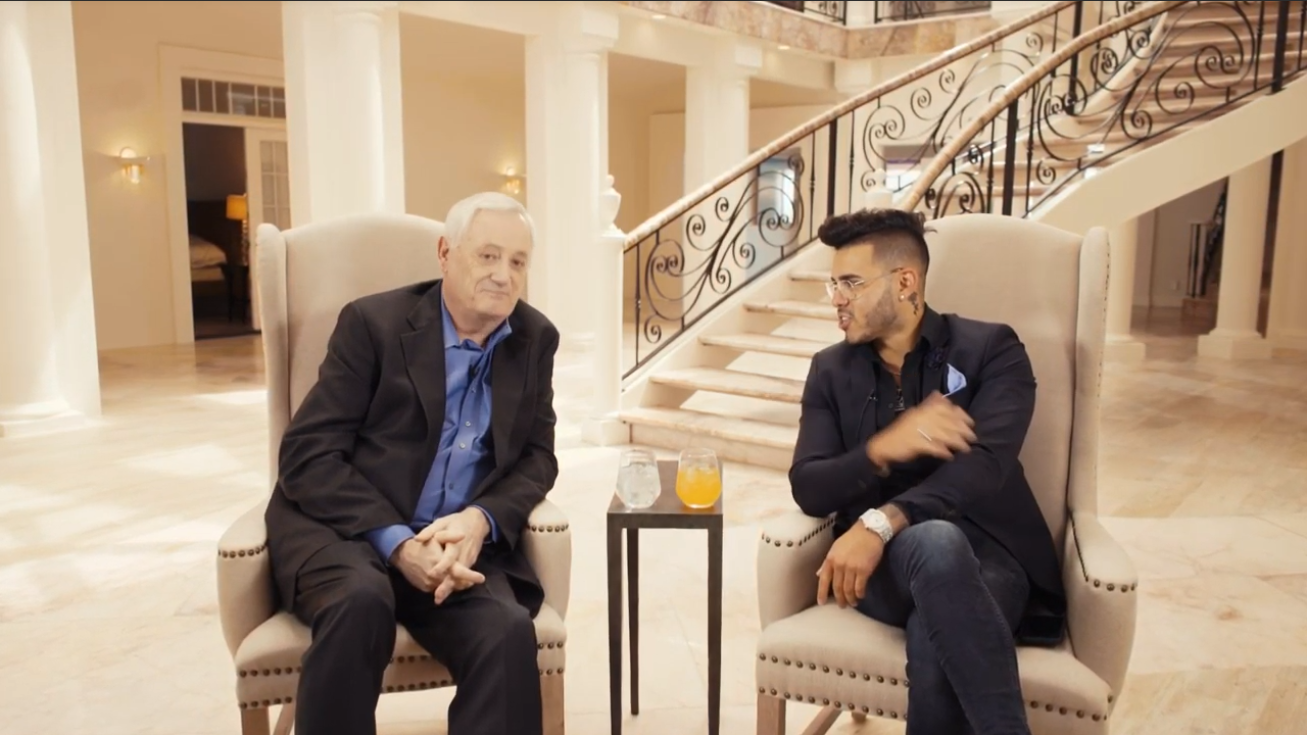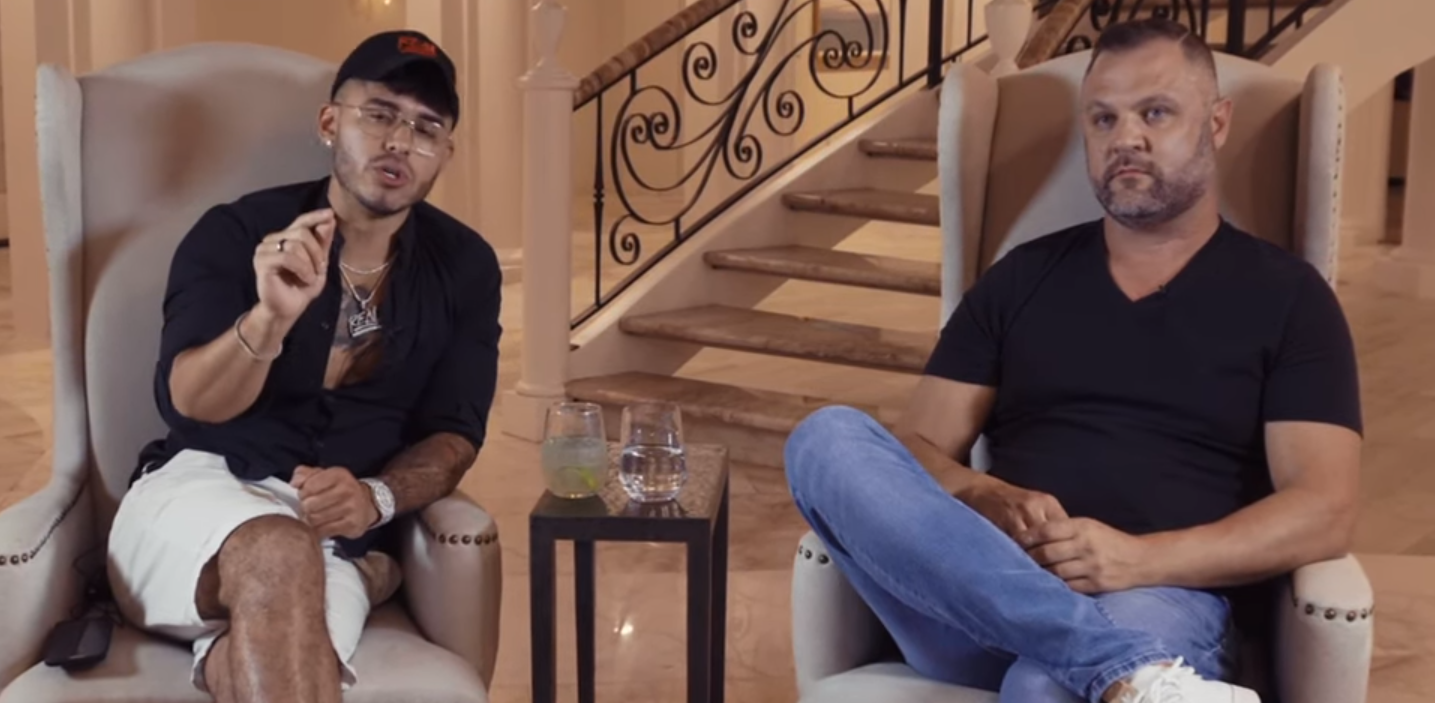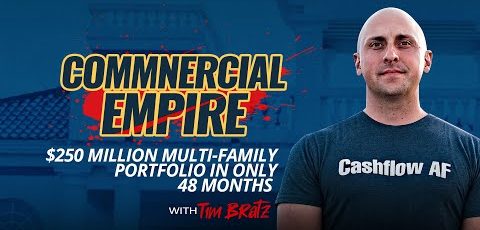Share This Episode:
What if you could CONSISTENTLY lock down more than 40 deals a month, in over half a dozen markets, with over 80% of those deals locked up over the phone in less than 10 minutes after your initial hello?
That’s exactly what Raphael Vargas and Episode 3’s special guest Steven Morales do month after month.
And they’re doing it all virtually, in distant markets - rarely meeting any of these sellers face to face.
While everyone else is out there wasting time driving all over their Metro market chasing down sellers, they’re losing out because the REAL Step team already has them on the phone and the house locked up with Docusign while they’re stuck at a red light.
If you’re looking to create a digital and virtual wholesaling culture, this is one episode of The REAL Empire Show you won’t want to miss…
You’ll Learn:
- How the REAL Step Acquisitions Team is underwriting cold-call leads and have an offer ready in 7 minutes or LESS!
- Why investors who prefer the “traditional” approach are losing out (and why that trend shows no signs of slowing…)
- Strategies for successfully outsourcing “boots on the ground” in distant, virtual markets
- How to rapidly separate the wheat from the chaff and only invest your valuable talking to truly motivated sellers
- A juicy tactic that sets sellers at ease within just seconds of your very first convo
- Simple ways to get (and keep) control of every conversation you’ll have with a seller
- And much, much more!
9 times out of 10, the thing standing between you and the next level of success is having our Acquisitions down to a science. As Raphael’s own personal Einstein of Negotiation, Steven cuts right to the chase and shows you what’s working right now and has grown their business to a multi-million dollar virtual investing machine…
If you’re ready to 10x, 20x or 50x your wholesaling business, start here!
Subscribe now to start building the foundation for your own REAL Empire.
Raphael: 00:00
Welcome to the Real Empire podcast, the number one podcast to learn about real estate wholesaling and how to scale your real estate wholesaling company to a multi million dollar company. We have a special guest with us today, the head of our Acquisitions department, Steven Morales. Steven, thank you so much for obviously being here at the office. Obviously we’re here at work in, you know, but hey guys, I’m in this podcast today. We’re going to talk about the details of how to lock down deals over the phone and how we locked down, I dunno, you know, 40 to 50 deals on a monthly basis, right over the phone in eight different metropolitan markets. So Steven, you are a master and what you do, you’re an acquisitions master. You can talk to people over the phone, build rapport with them over the phone and get them an offer in just seven minutes and then send them a Docusign agreement right there so that they sign the agreement, the contract, and then we get wholesale deals, you know, 10, 15, 20 ion a weekly basis.
Raphael: 00:55
Right? So we’re going to talk about the details and I’m going to be interviewing Steven in this podcast, the details of how Steven locks down and he mastered the acquisition process so that you as an investor can learn exactly. You know, instead of going out to the property, seeing the property, etc., etc., how we analyze properties right here from our central office in Tampa, Florida, how we lock down the deals, how we build rapport over the phone, etc., etc. So you don’t want to miss this podcast. This Is going to be absolutely informative…keep staying tuned! So Steven, let’s begin. Um, I want you to introduce yourself to everybody, man!
Steven: 01:29
My name is Steven Morales. Thanks for having me on! I’m the Head of Acquisitions at Real Step Group. Um, I’ve been doing sales for over 10 years, so I like to implement strategies that learned throughout my sales career into real estate investments, especially when we do this stuff over the phone because the traditional way of, you know, real estate investors making offers and they go to the property, you look at it, you know, ARB repairs, yada, yada, yada.
Steven: 01:53
And while they’re doing that, we’re actually locking these properties right over the phone. So we’re going to be talking a little bit more about what that looks like and how we’re being very successful at it.
Raphael: 02:03
Yeah. And so Steven, um, you know, you, you’ve done sales for 10 years. That’s awesome. So what are some of the, um, you know, what are some of the details for the newer investors that don’t really understand fully, “Hey, you know what, what do you mean what is wholesaling?” Let me just briefly explain. Wholesaling is we market to homeowners, right? Homeowners that have distressed properties. And then what happens is calls come into our office. So let’s talk about broad, our acquisition process. So our marketing department does a lot of marketing, RBMs, cold calling, you know, a lot of direct mail, online advertisement, and all these calls come to our acquisitions floor, right?
Raphael: 02:38
So we have all these phone lines and all these sales people that are waiting for the calls to come in. Then the calls are coming in and we get between 200 to 350 calls on a daily basis from homeowners wanting to sell their property. So they’re calling in and…explain the process from there. So we call in and what happens?
Steven: 02:55
Yeah, so they call in and we have to give an offer in seven minutes. You know, it’s really important to set the tone and a control the conversation. We go through the script, we look at the MLS, we analyze properties and make an offer in seven minutes. Uh, if they agree, we lock up the contract and that’s pretty much it. But you’ve got to be…you’ve got to have tough skin. You’ve got to be really good with people and being very communicative with people or else they’re not going to trust you.
Steven: 03:18
So you’ve got to get used to the script and making properties offers on properties quickly.
Raphael: 03:23
Great. And obviously you have a course that goes into details of exactly how to use the script, um, how to…the tonality, how to market or how to actually analyze the properties, right. So let’s talk a little bit more about the script. Right. So let’s talk about the script and then in this podcast I’m going to go into the details of how we actually make offers to homeowners in just seven minutes. I’m sure a lot of investors are like, “I still go out to the property,” right? “And is this true? Yes or no?” We’ve literally locked down deals where investors were on their way to meet the home owner to sign a contract and we, because we locked it up and we made them an offer over the phone and we beat the offer of the other investor.
Raphael: 04:02
You know, that investor took too long. So would you agree that this is the old way of doing business, right? Going to homes, meeting them and signing a contract with the homeowner. Is that all, do you feel…
Steven: 04:13
Like that’s the traditional way. You can save a lot of time and headache just by making offer over the phone. Seven minutes. It’s not something you learn immediately. It’s an art and you got to practice at it, but once you have it locked in, it’s going to benefit your business a lot more.
Raphael: 04:26
Yes, 100% and you know what’s, what’s really big is that, you know, the Millennial generation, obviously he’s only getting older and older and older and so we’re getting, you know, we’re all online guys, you know, and we’re starting to see homeowners getting so comfortable just immediately doing business with us right over the phone.
Raphael: 04:43
Docusign agreements, as long as they see that we have a website, credible, etc., etc. There’s so comfortable doing business with us. And so, um, you know, as you’re a new investor, don’t think, don’t have the limiting belief to think that you have to go meet with the homeowner to sign a contract. You don’t need to do that. We’ve proven it time and time again in our office, 90% of our business comes from right over the phone. The other 10% comes from us meeting in person. We have runners in every single market, a market that we’re in, we’re in eight different markets and there if we can’t lock it up over the phone for whatever reason, they don’t have email or, for example, you know, they want to meet with somebody in person because they are traditional. Then we have a runner to go out there that goes out there and meets with them, locks down the contract.
Raphael: 05:27
So, um, let’s continue. So talk to me about the script. So a call comes in an…let’s kind of script, let’s kind of go through the script really briefly. You know, how does that go?
Steven: 05:35
So the first thing, the call comes in no matter what the campaign is, “Hey, this is Stephen, how can I help you?”; “Hey, I’ve got this post card, what is this about?” You know, then you could briefly explain how they got it. “Well, the reason you’ve got that is because we bought a property nearby”…it just depends on what kind of campaign it comes from. But the most important thing is right off the bat, uh, what I see a lot of other investors make the mistake of is just go through the whole script with somebody who’s not interested in selling or just want to see what their house is worth. Those are the people you don’t want to spend your time on. As long as they’re interested in selling, no matter how much they want, you go through the script, you have to nurture each lead as long as they’re interested in selling. So yeah, “I’m interested in selling”; “Great. Well our process is very simple”, and before we go through that, you always want to start off by asking, “Please, can I get your name and the address of the property.” Because if you go through those scripts, if you don’t have that. I mean, you can make an offer in seven minutes. You’ve got to right off the bat, you know, build rapport by asking, hey man, please start off by getting your name, the address of the property. Once you get the address, you know, on our Podio, you have the Google View right off the bat. We name a nearby landmark. And what’s so powerful about that, a lot of people don’t think that’s a really big thing, but it really sets the tonality and the rest of the conversation on a positive note because they’re going to know you’re the expert in the area just by you naming a nearby landmark…”Oh, isn’t that next to the museum?” Or, “isn’t that next to 1-2-3 Main street?”, “Oh yeah, I took my kids. There are, yeah, right around the corner.” So right off the bat. “And may I please start off by getting your name and the address of the property and then you name the nearby landmarks. So that’s the first section, you know, name, address, nearby and landmark. And then the next step is you want to set the expectation.
Steven: 07:13
You’ve got to let the homeowner know what’s gonna happen throughout the call. “Great. Well, our process is very simple. What I’ll do is I’ll start off asking some basic questions about the property. That way I can go in and evaluate the area right here on the computer to see what I can offer you. It takes about seven minutes. And just to let you know, we are real estate investment company so we don’t buy every property we look at, but we do have a team of realtors just in case we’re not a good fit.” And what that does is 1), it lets the homeowner know this is going to take about seven minutes cause a lot of people call in and they’re not, they don’t know long it’s going to take there. Maybe they’re not used to getting an offer right over the phone. They might think, hey this guy is just an appointment, has to go to the property.
Steven: 07:52
So they might take, think it’s going to take forever. When you set the proper expectation, how long it’s going to take and they’re on board, it just controls the conversation better. And you, you have control of the script right off the bat.
Raphael: 08:04
And you’re, and you’re showing them like baby steps, right? So it’s like, you know, same thing with a kid. If the kid doesn’t know what situation or environment there and you have to explain to them and they feel a lot more comfortable, right? So homeowners might not fully understand the process of selling their property, right? They might not understand the process of selling their property. And so once you clarify with them, hey, this is the process, it’s really simple, seven minutes we’re going to talk and if it makes sense then I’m going to send you an agreement. And so you’re explaining the whole process before actually going through it.
Raphael: 08:34
And so it’s like preparing them for, you know, the entire process which makes them feel comfortable and it makes you look reputable obviously. So continue on.
Steven: 08:43
Yeah. So that’s really important. The reason we say um, you know, “We are real estate investment company, we may not be a good fit. We don’t buy every property we look at.” That lets them know up front that you don’t pay above full market value because investment companies don’t give full price, you know, above fair market value or else they’d be out of business. Right. So right up front that lets the homeowner know, hey these people aren’t going to give me full market value for my property but if that’s not a good route and I’m still looking to sell, they still have other options for me, which we do have a team of realtors just in case we’re not a good fit.
Steven: 09:14
So right there, right off the bat, let’s, let’s backtrack real quick. Seven minutes. Let’s know the time. Uh, we are real estate investment company so we don’t buy every property. Let them know that hey like we may not be a good fit. We are investment company and that’s okay because if we’re not a good fit as an investment company who can still help you out by listing the property on the open market and you always want to end the whole conversation, you know, the sentence, lines, whatever, “Does that make sense?” Open ended questions. That way you can keep going to the conversation you control. You never want to have those awkward pauses where you just stop with the statement and they’re like, ah, okay, what’s next? Always a “does that make sense?” You know, or something.
Raphael: 09:51
So real quick, this is, this is a key, I’ve, I’ve written a lot of sales books as well. And just like you, I’ve studied NLP in sales and I mean I had to learn this stuff starting my mother’s basement. So one thing that you mentioned was so key, right? Which is you never end with a statement, right. When you are on the phone with a seller, do not let them lead the conversation. You don’t say, “Hey, I think I can offer you $50,000 for your home”, pause. You are always, always, always ending with a question. Why? Because when you end with a question, you are directing the conversation with a question to take to the next step, the next step, the next step, which ultimately is the closing. So you never end with a statement, right? Correct. So a lot of investors might say, “Oh yeah, that property’s 1-2-3 Main Street. Sure. Yeah. I can offer 50,000,” and pause. Terrible way. Right. Cause you’re letting them again dictate the situation. You always want to end always with the question. “Oh yeah, you went through probate. Yeah. You know, I hear that’s really a pain.” You know, you have to always end with a question. So continue on.
Steven: 10:57
Yeah, always end with a question. That way you’re in control of the conversation. You want to control the whole thing. Okay. So, uh, “Does that make sense?” After you tell them seven minutes, we are real estate investment company if we’re not a good fit, we’ll hook you up with some realtors. Great. The next step is you want to start asking questions about the property, but you want to lead them…”So can you tell me about the property? You know how many bedrooms, bathrooms, condition,” things like that. Let them talk and tell you all about their property. While they’re telling you this stuff, you want to pull up the MLS and start running comps. So what I really care about bedroom, bathroom, square footage, you want to ask about roof, AC, things like that based upon what they tell you. We have three categories we have: needs full renov, fair condition or fully renovated.
Steven: 11:41
When you run your comps, you’re going to look at these three options. That’ll tell you what to look for. But let them speak, let them vent. Listen, every conversation’s going to go differently. The script, the point of the script is to go like a funnel of bullet points. They might go this way, you go this way, whatever. You always want to make sure you go back to exactly where the script is and follow the bullet points. That way you can close a deal. But let’s say they talk about their dog. Oh yeah, about their dog, great, “So what can you tell me about the property as far as conditions”, things like that. So, get the basic information and while they’re speaking about that, you want to go ahead and run the comps. Okay. Um, after you get all that stuff, the next step is, “Wow, I mean this seems like a great property!”
Steven: 12:22
“What’s got you looking to sell?” So what that does, it uncovers their motivation. It’s almost like a mini takeaway. You never want to just go through it like, oh, this is great deal. Like let’s lock it up. No, I mean, “This sounds like a great property, why are you looking to sell?” What that’ll do, it’s going to uncover more of their motivation as to why they need to sell or why they want to sell. It sounds like on the acquisition side, like you don’t need the deal, like why are you looking to sell, you know, it’s a great property. Let them explain that to you. That way it will bring out the motivation. Okay, “So yeah, I mean I’m looking to sell because, I’m relocating,” “Wow, okay.” I mean we get a lot of calls like that all the time. You can always throw a little bit of rapport there as long as you redirect them back to the script and those exact bullet points.
Steven: 13:04
“Okay, great. So I mean if you’ve got an offer you like, what kind of timeframe were you looking to sell? About a week, a month, a couple months?” Notice I guide them with questions and give them options and they pick. “Hey, we are mostly investment company, but if we’re not a good fit, we’re affiliated with a team of realtors.” That’s a choice. “Hey, I mean, when were you looking for about a week, a month, a couple of months.” Let them choose one of those three options. You never want one of those awkward pauses and end with a statement and then they’re in control. So we’re looking about a week, a month, a couple months that’ll tell you, uh, you know when they want to sell or they that motivated. Are they serious? Those kinds of key questions. You control the conversation, why they want to sell and also the kind of timeframe. Okay. So once you get those things and running comps, “Oh, I’m looking to sell, you know, in about a month.”
Steven: 13:47
“Okay, great.” The next step is you’ve got to get a number out of them. Something we do very good is we never get to give out a number; that’s going to show your cards. If anything we give out a range, but you always want to get a number out of the person. Okay. If they don’t, you run the comps, you give them a wide range. You know, in our office when we script training, the ARV’s $300,000, the max offer’s $150,000 you know, we go through a lot of different scenarios, but we never want to give a homeowner a range. If they want a very specific range, we’ll get to the point where it’s like, uh, uh, silent, scribble, close, you give them like an odd number. But it’s always within a range because a lot of investors, they might give an exact number. Now you’re doing…you just got like smaller or you lost control of the conversation.
Steven: 14:30
The homeowner is complete control, you know? So one thing is, uh, while you’re on the comps, right, “Okay. So what do you think the property’s worth or what you’re looking at or at least sell for?” Well, let’s say an example…an ARB’s $200,000 and max offer’s $150,000. “Well, um, you know, my neighbor’s house sold for $200,000. My house is bigger, it’s more updated, the landscaping is great.” Um, you know, no matter what they tell you, if it’s a good number or bad number, you always hesitate. Remember you, you don’t want to sound like you need the deal. Sometimes people call in right off the bat, it’s a $50,000 deal. You still need to hesitate because if you make it too easy for the homeowner, “But that was too easy. Can I get a higher price somewhere else?” Always hesitate. “Hmn…$200,000…um, man, I mean…” Then, what you do is you want to educate the homeowners.
Steven: 15:23
You remember a lot of people calling in and they may not know about real estate comps, stuff like that. Never say comps. You want to say property’s as is condition. The next step is you want to educate the homeowner. “Hey, are you familiar with Main Street?”, “Yeah, I’m familiar with Main Street.” “Well, this property at 1-2-3 Main Street just sold for $130,000; I’m taking that into consideration. What do you think yours is worth or what we’re looking to at least sell for?” Or you can ask, “Is that more or less we were expecting to get for yours?” Remember, you don’t want to say, This property sold for $130K” and then you’re quiet. Right now they’re in control. Now they want to guide the conversation. So what we’d like to do also on our team is we like to anchor price.
Steven: 16:04
So let’s say the max offer’s $150K, you look at the cash comps and you see one for $100,000. Spit out $100,000. The reason we do that is we want to see how they react or we want to see where they’re at. Some people they know they’re selling to you at a discount because we can close quickly and there’ll be okay with it. Some people say, “I will never sell for that much. Are you crazy? I’ll never sell for that much.” So if that happens, you simply say, “Hey, I’m not saying that’s what we would pay you. I’m just giving you facts of the neighborhood.” “Oh, okay, great.” Then they’re back in the conversation, but that’ll tell you more or less where they’re at. You got to give them options. Start off with a low price. Work your way up. Right? So the max offer’s $150K, you give them $100,000 they get insulted, and you say….
Steven: 16:46
“I’m not saying this is what I would pay you. I’m just giving facts and neighborhood, but based upon that, what do you think yours is worth?” “We’re going to do stuff for, well, I would never sell for $100,000, I was looking for at least $130,000.” You can’t do that take-it-or-leave-it just as an example. So our max offer’s $150K, he wants $130K, you still doesn’t take. So right off the bat, in our office, we at least like to make $10K on every deal, right? So if they want $130K, it’s a really good deal, but you still hesitate. Never jump on it. “Um, $130K, you know, I mean, let me ask you this, Mr. Seller…” This is a very, very important tip. If you have a juicy deal on the line or a $5K deal on the line, this is how we get them juiced here.
Steven: 17:28
You restate all the benefits and that person will either stay at that, their number, or go lower. And this is how you do it. Pay attention. “So listen, Mr. Seller, $130K, you know, that’s, that’s really tight, I mean…let me ask you this, if we can cover all your closing costs, fees, commissions that we can work and close in the time frame that works best for you, what is the best price you can do?” Notice I don’t say like a lot of investors make the mistake of asking is that the best price you can do? When you ask that, they’re going to say yes or no. Typically they’re going to say yes, right? If you ask what is the best price you can do, they’re going to stay at their number or they’re going to go lower. I had somebody this morning, they wanted like $70,000. Um, then they went down to like $60K and then $50K, just by asking that question. Just by asking that if they’ll go lower because once they start seeing the benefits of working with an investor, they’re willing to give up equity in their house. They know they’re selling their property at a discount, they don’t want to deal with realtors, list it, all of that. They just want to sell it quickly. So always ask what is the best price you can do and they’ll either stay there or go lower.
Raphael: 18:32
Now that, that is a phenomenal point because sometimes you could just keep asking them the same question. You know, it’s like they’re like, “Oh I want $70,000” and you say “$70,000? Mrs. Seller, if we’re going to pay all closing costs, commissions, is that the best price you can do?” “Well, you know, maybe I can do $60K…” “Mrs. Seller, I mean a property on the street just sold for $45,000 and that was in as is or similar shape to yours. Mrs. Seller, this property sold for $45K right down the block;$ if we can do you know, if we could buy your closing costs again, again is 60,000 the best part that you do and you did that twice a day and got her down to $50,000 from $70K to $50K, so that’s amazing. So we’re going to wrap up here soon, but I wanted to, before we ended it with, I want to end with how do we run comps, right? So obviously if you’re coming to one of our events or if you get his course, you know, we, we can’t show you here on the screen, unfortunately on the podcast. But you know, if you get his course or come to our events you do, you can see exactly where on comps. But let’s give them an overview really quickly before we end here on how do we run comps, right? How do we make offers to homeowners in just seven minutes? Explain to them that.
Steven: 19:39
Yeah, so basically a lot of you, I’m sure I used to the whole 70% ARV minus repairs minus wholesale fee, all that stuff. All we really care about is what are the end buyers buying for in your area. So when we go on the MLS, you got a brief overview of what the ARVs are. Then you pull up the cash comps and, remember, your property, let’s say it’s like 1200 square feet. You want to look at properties in similar square footage. You don’t want to look at properties that are, you know, 2,500 square feet are like 600 square feet, right? You want to stay more or less around 300 square feet more or less. But then you look at the cash comps and you want to see what investors are buying those properties for. So that saves time right off the bat. Sometimes you’ll see those little 2s and it’ll show like a flip. So all we really care about is what our investors are buying for, we don’t do the 70% minus repairs minus all that stuff. Um, that’ll really give you a quick, quick, uh, you know, process as to what we can make an offer for. As long as we’re $10,000 beneath, $10,000 underneath that, that will be okay.
Raphael: 20:44
So real quick, because the way I started wholesaling seven years was 65% of ARV minus repairs and blah, blah, blah. And I was so confused as a newbie wholesaler, right? Starting off like, what does this all mean? You know, I don’t even know what 65% of all this stuff means. So then we simplified it, right? We said, dude, screw the calculator. Right? What we care about is truly what are investors paying for? Why? Because investors are ultimately our clients, right? We, we are just looking at what investors are paying for, and some areas it might be 65%. In D.C., it might be 85%, 90%. Right? Because investors are looking for less return because it’s a more stable market. So you can’t use that as the rule of thumb. The rule of thumb that you have to use from what you’re saying and what we’ve determined in our company is, you know, finding out what investors are paying for in your market in that pocket within like a 0.5 mile radius. Once you find out what the investors are buying for, then we make offers in what you’re saying $10,000 below that. That’s how we make our spread. Correct? Correct. Cool. Anything else you want to add to that? Because you do it like so fast. So one tip is the MLS, right? Explain the MLS.
Steven: 21:58
Yeah, you need MLS access.
Raphael: 22:01
What is the MLS…I mean a lot of people here are new, so what is the MLS?
Steven: 22:04
Sure, sure. So MLS stands for Multiple Listing Services; basically where properties are listed. You know, bought, sold, bought. That’s what realtors use. Basically, it’s the most accurate data. You don’t want to use Zillow, realtor.com Redfin, you want to get accurate data. You can look at cash comps from investors who’ve bought there before. So that is super key when you’re making these offers over the phone to cut to the chase rather than driving out to the property. You still need something to look at. MLS access is mandatory in order to make this thing work. You know, you don’t want to run it by Zillow and do all that stuff. So that’s basically what we use and uh, you know, I don’t expect you, once you start learning it, it’s not something you can learn overnight.
Steven: 22:38
It takes little bit of practice, but it’s very important to learn the script and you know, analyze the MLS quickly because a lot of these people there, we’re locking them up because they feel comfortable. They know where the experts and it saves homeowners time, especially no matter what they’re going through in life, no matter what they want to sell their property for or why. We’re making offering seven minutes. That’s very powerful rather than going out to the property. And for those other investors, like we said, you know, they’re driving out to the property, we’re already locking it up just because we’ve mastered that process. So the Multiple Listing Service is extremely crucial, uh, when making offers over the phone.
Raphael: 23:12
Awesome. So three big keys, right? Use the script properly and when you’re using the script, these are main takeaways for the podcast. Use the script properly and when you are using your script, whatever script it is, whether it’s ours or whoever it is…
Raphael: 23:27
Never end with a statement, always end with a question. Tip Number Two that I took away is start trying to lock up deals over the phone. Stop going out to meet with every single homeowner. It’s so time consumptive and it’s hard to scale a company to the multimillion dollar level, like where we are, to that multimillion dollar level. If you’re going out and meeting homeowners time and time again. Tip Number Three, you have to get MLS access without a doubt. That is the way you can run comps immediately. Make offers to investors immediate, uh, make offers to homeowners immediately based on what investors are buying for them. Man, those are some top three tips that I think our viewers got a lot of value from. Steve, any final questions or any, any final things that you want to leave with for our viewers?
Steven: 24:10
Thanks for listening to the podcast. I hope you guys are getting some value. Obviously we can’t, uh, we don’t have time to show you everything how works. But if you’re more interested, you know, check out our events. Um, and or my course specifically for acquisitions at: realempire.com/mastercloser.
Raphael: 24:28
And you can follow Steven on Instagram. He’s very active on Instagram; go to @OfficialStevenMorales. We’re going to put all the links here in the show notes. Um, so yeah, follow him on Instagram. Go to our event. We share an event that we do together. He leads the entire sales part of it, which is such an important key. Sales and acquisitions when locking down properties is such an important key. You know, you can do all the right marketing, but if you get those calls in and you’re not building rapport, the homeowner doesn’t trust you. You’re not making the right offers. You losing deals and deals and deals. So you have to understand the sales process. Such an important key. Steven, thanks so much for being on the podcast. Let’s keep crushing it, brother. All right, thank you guys.
Quotes From The Show
Never Miss New Shows
Be the first to know about new episodes, download episode summaries and discussion questions, and stay in the loop about what’s coming up.











 © 2026 REALEMPIRE.COM. All Rights Reserved. Real Empire provides universal access to the world’s best education, partnering with top universities and organizations to offer courses online.
© 2026 REALEMPIRE.COM. All Rights Reserved. Real Empire provides universal access to the world’s best education, partnering with top universities and organizations to offer courses online.
Write a comment